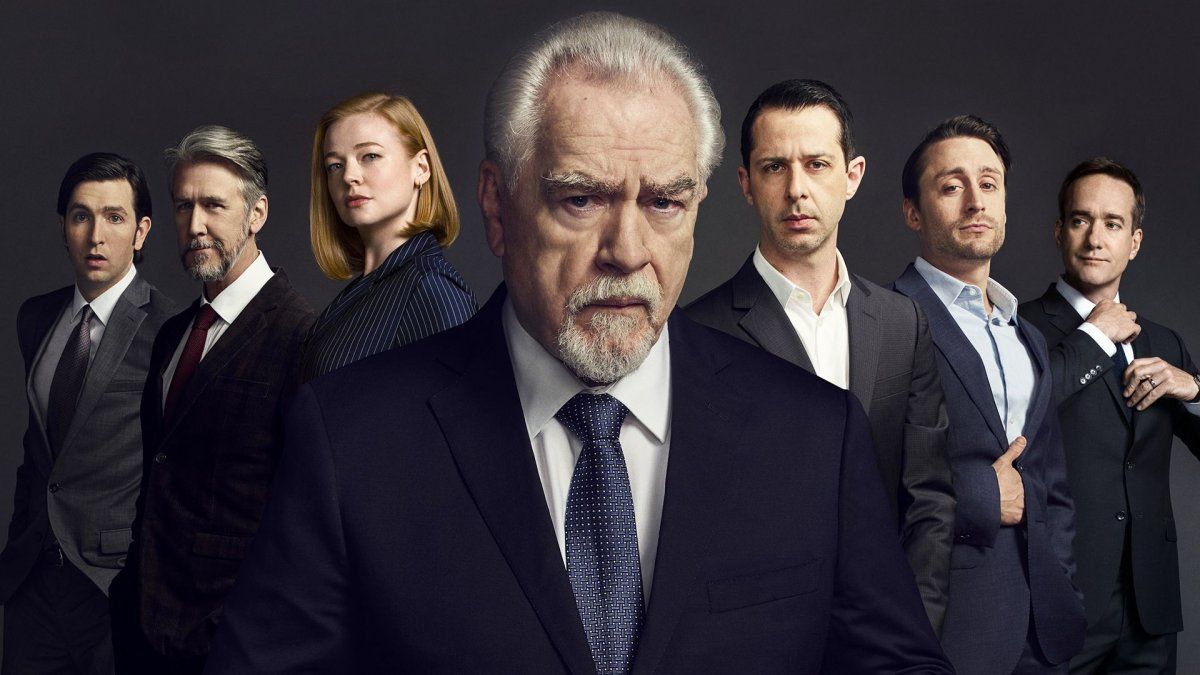like so many fans of this stupendous miniseries that has just finished, it is still hard for me to say goodbye to the Roy brothers and I take advantage of their strong spots light on corporate life, to touch on a topic that has always interested me.
When we enjoy characters like Logan Roy or the Frank Underwood of house of cardsWell-thinking critical comments that are difficult to contradict often appear in social gatherings. Indeed, simply stating out loud that they don’t seem like such bad people to you can be challenging. Well, for most, they are the devil himself.
However, I would like to take another look at this and in the specific case of the leader of succession. His style of government is undoubtedly tyrannical and despotic. In our current life, these traits are obviously negative. But, in its consideration, one usually goes from thinking about the corporation to thinking about the republic in an uncritical way and, thus, falls into confusion and errors of appreciation.
Republic and corporation, these two great social inventions of the modern age, have much in common: it is a set of rules of social behavior that determines roles with rights and duties, within a framework of checks and balances, that is, checks and balances, mutual controls between the different people in charge of assuming those roles. But obviously republic and corporation are not the same, since one is in charge of managing public issues and interests and the other, private issues and interests. And, accordingly, their rules and roles are different.
Therefore, if in a republic a president acts despotically, his conduct is absolutely reprehensible, without mitigation. In a corporation, on the other hand, this does not have the same value, nor does it have to have it. For this reason, the reasons for which we condemn Vladimir Putin, Nicolás Maduro, Daniel Ortega or one of our vernacular caciques for adopting tyrannical attitudes do not serve to criticize in the same way Elon MuskDonald Trump (the businessman, not the politician) or… our Logan Roy.
The personalistic way of conducting companies is the one adopted by the founders who create and grow a company until it becomes successful. In fact, not many examples of the birth and initial development of corporations other than those led in a despotic manner are known. The owner, the founder, did things her way and also made it possible for us, after her success, to consider how to continue without him or her, when it becomes clear that her light and strength begin to fade. That is where the succession and thanks to that kind of despotic success. Without him, on the other hand, there would be no succession problem, simply because there would be no company.
From the theory of corporate governance, it is advisable, at this point, to change the form of governance, to take an evolutionary step towards a more sophisticated form of government. This is the only way to replace so many virtues that had existed in the founder and that are unlikely to be repeated in any of his heirs. Each of Logan’s sons imitates one facet of his father: Ken chose to emulate his determination and willingness to overcome his inclinations for corporate duty; Shiv chose to imitate cunning and ambition without limits or backsliding; Rom imitated the fearlessness and contempt for others required to lead harshly.
All those despotic “attributes” were in Logan. But Logan was so much more than those attributes, and besides, he had them all, not just some. Personal leadership attributes are not puzzle pieces that can be put together on the table from several different people to make a Frankenstein or a Leviathan. For this reason, corporate governance created collegiate bodies, such as the Board of Directors. Not so that parts of individuals come together, but so that several people, acting fully, with all their attributes and not just with some, with their different views, achieve a common course of action through creative deliberation. When this occurs and a board of excellence is achieved, the output it is far superior to that of any despotic leader. But… how many times does it occur? To tell the truth, very rarely. For this requires training and experience in the members, awareness of the sophisticated regime of rules and roles of a corporation and success in management. Many very difficult demands to achieve.
Although in the face of a corporate despotic talent like Logan’s, the success of a professional Board of Directors seems to lose, the truth is that a board of directors can be greatly improved through training and assistance, but it is impossible “coach” to a talentless despot. And the talented are not left coach too much. Corporate governance is the professional answer to normal life, where heroes are few and far between. And we all prefer to live a normal and well-carried life than live the shock of an enlightened leader who later finds it very difficult to tell him that his light has already gone out.
My conclusion: there is no need to despise the Logans of this world for their despotism. Rather, they are worthy of admiration, for having given us successful companies. It is simply a matter of knowing that, when they go out, their successions require an evolutionary leap in the governance structure and a lot of professionalization in those who will occupy the new roles. And for those aspiring to succeed them, who know how to do things professionally, without wanting to imitate an already unnecessary despotism, in order to learn to live in a more sophisticated governance structure and broaden their own vision.
President of the Institute of Business and Public Governance
Source: Ambito
David William is a talented author who has made a name for himself in the world of writing. He is a professional author who writes on a wide range of topics, from general interest to opinion news. David is currently working as a writer at 24 hours worlds where he brings his unique perspective and in-depth research to his articles, making them both informative and engaging.




